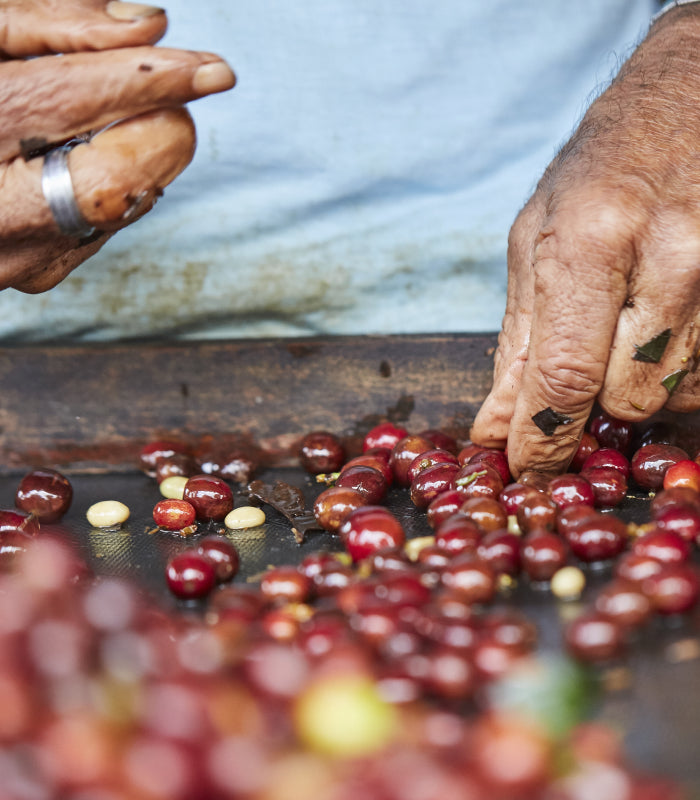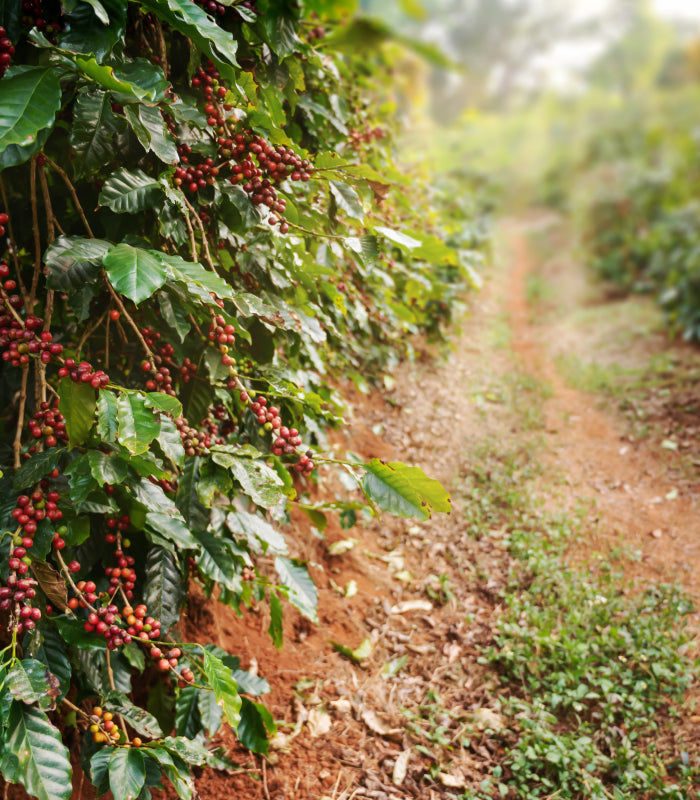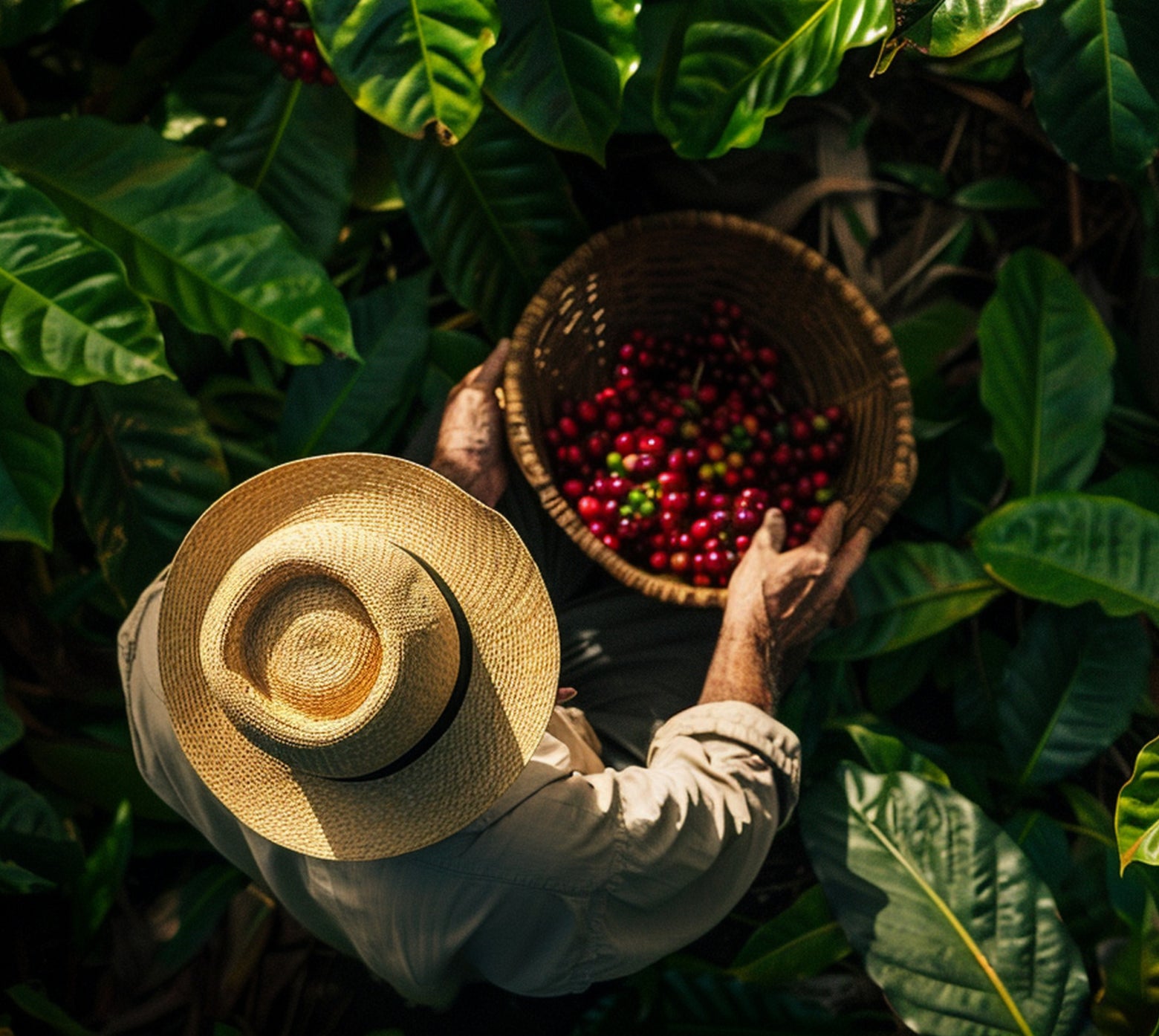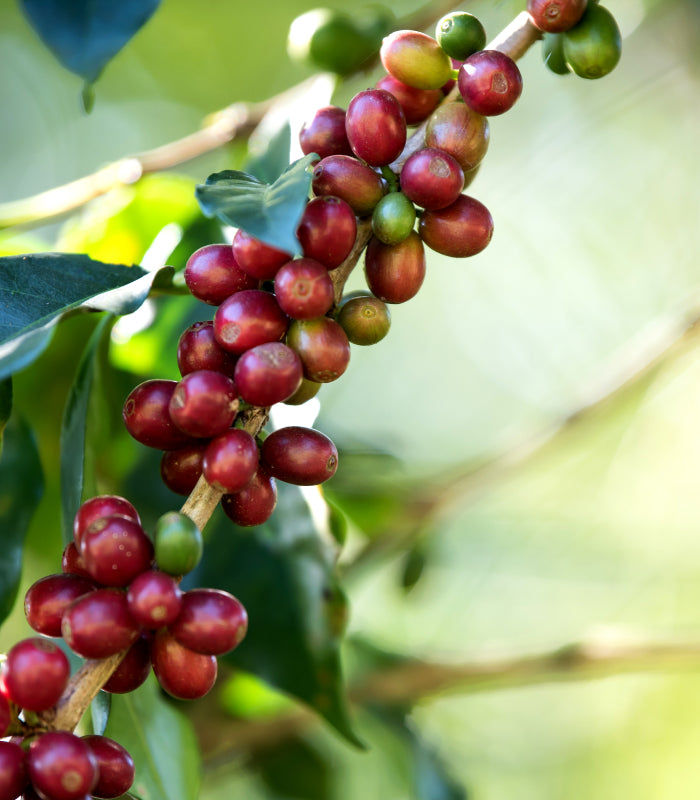Description
Description
Origin
Origin
Brew Advice
Brew Advice

Always fresh
For incomparable taste
We roast several times a week.

Secure payment
Choose from a variety of
secure payment options.

FAST DELIVERY
Safe and reliable with DHL
shipped. Directly to your home.
roasting
Omni Roast
Our Omni Roast is roasted a little lighter and faster than our espresso roasts, but a little darker and slower than our filter roasts. This versatile roast is designed to work well as both a filter coffee and an espresso . The flavor profile leans more towards that of a filter roast, with prominent fruity and sweet notes, but also offers the intensity and body typical of espresso. This balance makes the Omni Roast particularly flexible and ideal for coffee lovers who like to experiment with different preparation methods.
Light roast
The light roast, with a roasting time of 7 to 10 minutes , emphasizes mainly fruity aromas, without dominant roasted aromas. The body can vary from light to medium, with increased acidity often noticeable. This roast is ideal for lovers of fruity and floral coffees .

processing
Washed Process
In the so-called washed process (or wet processing), the coffee cherries are thoroughly washed after harvest and sorted by size through various sorting channels . Larger and heavier beans are considered to be of higher quality. The pulp is removed, and the beans are fermented in water tanks. After fermentation, the remaining mucilage is completely washed away. The coffee beans (coffee cherry kernels) are then dried in the sun on so-called African beds ; some farms also use special greenhouses that function like hothouses and protect the beans from the elements. The process culminates in a final finishing step in the dry mill , where the beans are usually also graded.

Cultivation land
Coffee cultivation in Ethiopia
Ethiopia is considered the birthplace of coffee, with a fascinating history of discovery dating back to goats and their herdsman, the Kaldi . Ethiopian coffee is known for its wide variety of heirloom varieties found nowhere else in the world. Often offering floral and fruity flavors, Ethiopian beans are renowned for their quality and uniqueness.

Coffee specialties
Microlot: Exclusive small batches
A microlot represents a high-quality, small batch of coffee that is selected for special characteristics such as a special variety, exceptional growing conditions or an innovative processing method such as anaerobic fermentation. These coffees often come from a specific part of a farm where the soil, microclimate and sunlight provide optimal conditions for growing. Microlots are known for their high quality and limited availability and often offer unique flavor profiles that set them apart from standard coffees.

Types of coffee
Arabica
Arabica is the most widely consumed type of coffee in the world and is generally considered to be of higher quality compared to Robusta . Arabica coffee is characterized by a delicate flavor profile that can range from fruity to chocolatey-nutty flavors. This diversity is partly due to the variety, the country of cultivation, the soil, and especially the altitude. Arabica is grown at higher altitudes , typically above 1000 meters , where the slower growing conditions encourage the development of richer and more complex flavors. However, Arabica is also more susceptible to pests and fungal diseases such as coffee rust. More recently, Arabica-Robusta hybrids have also been developed to combine the robustness of Robusta with the delicate flavor characteristics of Arabica.





